
HORIST: SPECIAL COMMENTARY – Tribalism in the wake of Las Vegas
In a very dramatic and tragic way, the reaction to the shooting in Los Vegas may indicate whether America represents a culture or a collection of tribes. The immediate answer on the scene suggests we are a strong culture, bonded together by a remarkable dedication to noble core values.
The concert was a collection of some 23,000 people drawn from around the country with a diverse array of races, religions, opinions, party affiliations, ages and economic levels. They were doing what Americans do as well as any nation in the world – and much better than many. Setting aside all those differences, people entered the concert venue peacefully and with only one purpose in mind – to enjoy the country music of Jason Aldean in the company of thousands. This cultural comity is such a common occurrence in America that we too often take it for granted.
That great American culture proved itself again as the bullets began to descend on the gathered masses; as cheering and dancing fans began to drop to the ground; and as the screams of horrified recognition drowned out the twangy riffs of Aldean’s guitar. Even as the shooting continued friends and strangers alike reached out to aid others to escape the line of fire or even to remain in place to attend to the wounds of the fallen.
As the eyewitness reports began to appear on television, we saw a bare-chested young man who had shredded his shirt to be used as wound covers or tourniquets. There was the young mother carrying her daughter in the midst of the panic crowd. When someone shouted, “She has a child” the terrified crowded parted to let her move forward faster. There was a young veteran who had been involved in rescue missions in the Middle East. He repeatedly reentered the killing field to rescue the wounded. There was a young lady pushing the wheelchair-bound older man out of danger – slowing her own escape. The man who suffered a bullet wound shielding two young ladies.
So common was this type of action that it is almost unfair to single out these few. They are not exceptions; they are the rule. Though it cannot be calculated, there is no doubt that a number of people survived this event because of the courage and kindness of strangers.
Whether it was as an audience of concert goers or as Samaritans in a time of desperate need and challenge, the people in that crowd were a microcosm of the American culture – noble, united, courageous and caring.
In recent times, however, we have seen the United States’ political process evolve into a series of competing subcultures. Some have referred to it as the Balkanization of America – alluding to the long history of conflict between the small nations that formerly comprised Yudoslavia. Political scientists call them “interest groups.” In more contemporary terms the phenomenon is referred to as identity politics. Anthropologists might be inclined to simply call it tribalism.
Tribalism occurs when the self-determined good of the group trumps (no pun intended) the good of the greater society. It results in basic values being applied arbitrarily. No nation can survive without a common culture – or as it is oft stated, “United we stand. Divided we fall.”
If we are a nation with a culture, we will react with a common understanding of the tragic events in Las Vegas. There were no divisions among those attending the concert. Since then, however, the evidence of tribalism has emerged in both the mainstream and social media. The debate over gun ownership reemerged if not as an absolution for the man who pulled the trigger at least a distraction from the reality of his evil deed. Significance was given to the fact that the shooter was an older white man as opposed to (pick your favorite) a Muslim or a black man or an illegal alien? In the minds of too many, he personified a tribe to be condemned for his action.
We tend to be too concerned with the tribal identity of bad actors rather than the more important distinction between good and evil. In taking the discussion to the tribal level we expand the evil from the guilty individual to an innocent class – the other tribe.
There is a tendency to understand or accept evil in our own tribe while condemning it as a characteristic of that other tribe. Instead of universally condemning wrongs we justify them. When President Trump made a moral declaration that all violence should be condemned he was criticized for equating tribal violence on one side with violence on the other. In other words, the meaning of violence is to be determined by tribal identity. Such tribalism is seen in the violent protesters of Antifa who justify violence as the “any means” to impose their will. It is also found in the calls for attacks on police by Black Lives Matter.
Cultural assimilation is the antithesis of tribalism. It is the reason we refer to anti-assimilation movements as subcultures or countercultures. What was once the American melting pot had become a bucket of rocks – white, black, brown, yellow and red rocks – never to meld into a unified culture. That is tribalism.
Virulent tribal stereotyping was seen in the malicious FaceBook comments by CBS Vice President Hayley Geftman-Gold, who claimed no sympathy for the dead and wounded because there were most likely Republican country music fans and therefore opponents of gun regulation. While her outrageous opinion got her fired, that sentiment frequently appeared in social media.
What should come out of Las Vegas is a unified opposition to human evil. The horrendous tragedy that took place on the on the famous Las Vegas Strip is the act of a single evil and deranged individual. He is not a member of a tribe attacking members of another tribe. The Boston bombers did not represent all Russians. The San Bernardino couple did not represent all Muslims. The Virginia Tech shooter did not represent all Asians. The Pulse shooter did not represent those who disapprove of homosexuality. The Sandy Hook and Columbine shooters did not represent white youth. The killer of the abortionist did not represent the pro-life community. The men who blew up the Murrah Federal Building in Oklahoma did not represent conservatives just as the Unabomber did not represent progressives. No matter their intent or their claim, they were all the individual agents of evil.
Black activist Whitney Young once called upon the nation to abandon our coalitions of blacks against whites, men against women or any of the other tribal pairings. He was calling on America not to descend into the destructive lairs of tribalism, but to rise in unity as a coalition of good against the forces of evil.
To politicize Las Vegas is to use evil as a rationale for tribal feuding. As the reaction to the tragedy of Las Vegas, we should take our lead and lesson from those average Americans who demonstrated cultural unity before and after human evil intervened.





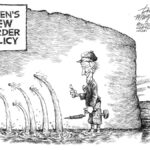




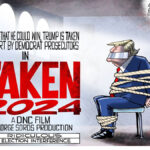


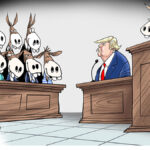


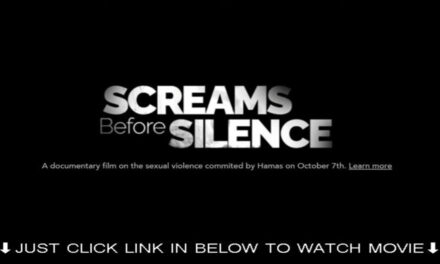

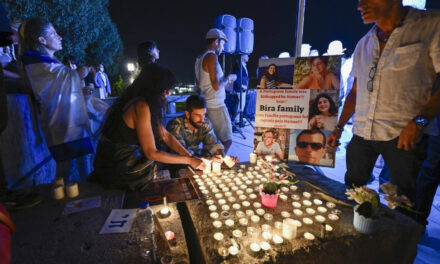

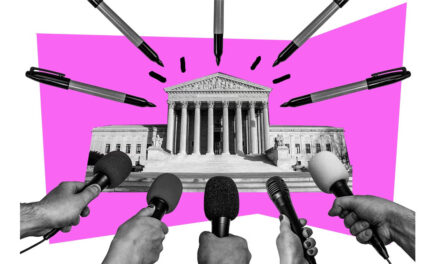


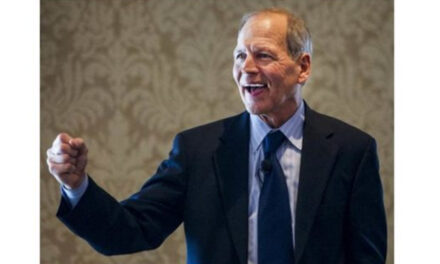




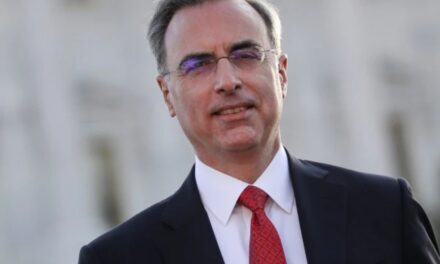

Tom, you can google Cannon’s release of documents based on Trump’s legal team discovery request. Many articles point at things…
Jjb: what rights are different? Be careful: since 2009 vp’s can declassify. Robert Hur, appointed by Trump, exonerated Biden and…
This article gets a Stop The Spin rating of STS-4: Here is why: Bottom line: This article attempts to make…
First - He only gave them back, because he got caught w/the documents that he should have NEVER HAD IN…
This article would should be sent to Gaza as food because it is full of bologna! 1) What is the…